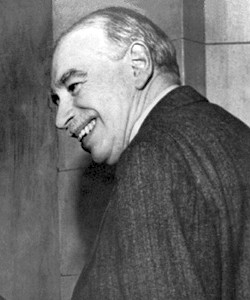Surveying the economic landscape in 1930, John Maynard Keynes opined that “the permanent problem of the human race” would be resolved in two generations. “The struggle for subsistence,” then our “most pressing problem,” would fade, replaced by affluence unimagined before the 20th century.

Whatever we think about the financial situation today relative to Keynes’s time, leadership scholars and practitioners should consider Keynes’s general argument: leading for today is fraught with the danger of potentially ignoring the effects that steps taken today will have on future generations.
Of course any individual can ignore the effects of their choices on the future—consider the popular bumper sticker “We’re spending our children’s inheritance.” Whether we approve of that sort of consumption or not, we generally allow that the decision is a private matter, and we mostly leave it alone. (Interestingly, while we reserve judgment on whether a person should save for the future, we often express approval for those whose choices signal that they care about the future environment.)
But leaders have a wider influence when they design and implement policy. First, there is the impact that a shock today can have on the future. Second, there is a lethargy associated with policy. Once in place, policies create winners and losers and it becomes difficult to convince the winners that a policy should be unraveled.
Leaders’ influence thus spills over to future generations without the agreement of the future parties (and, sometimes, without the agreement of the present parties). The problem may be exacerbated because leaders’ time horizons—e.g. an election cycle—are often much shorter than those of ordinary people.
How do we fix this?
We need a future-minded orientation, including self-leadership. Deirdre McCloskey and others have written about the significance of “prudence,” the ordinary but extraordinarily important virtue of looking after one’s self and loved ones. Perhaps prudence will again become fashionable, and we shall virtue signal by conveying our prudent decisions! And just as important, we need leadership from journalists, intellectuals, and politicians, to assess and report what our leadership (policy) choices imply for the future.

Comments are closed.